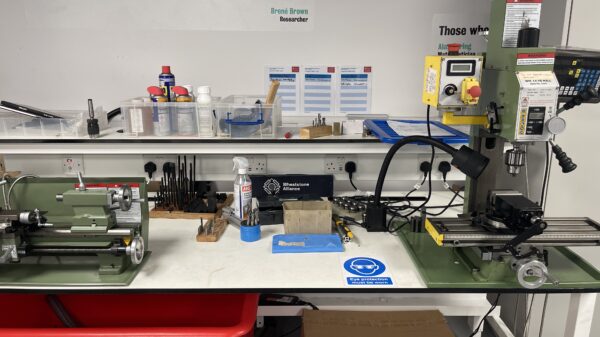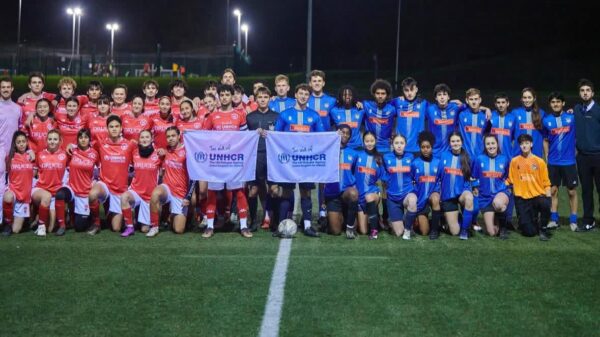Staff Writer Jennifer Hensey analyses the case studies of Harvey Weinstein and Sean Combs’ use of power and its implications for the wider media industry.
Editor’s Note: This article contains references to sexual assault that some readers may find disturbing.
With the surfacing of recent allegations against American rapper and music producer Sean ‘P Diddy’ Combs, the troubling pattern of powerful men exploiting vulnerable people has once again come to light. Combs joins a long list of high-profile figures – from Hollywood producers like Harvey Weinstein to financiers such as Jeffrey Epstein or comedian Russel Brand – who have all been accused of sexual crimes and abuse of power.
These are not isolated incidents but rather evidence of a systematic issue, where wealth and influence shield men from accountability and enable them to control and manipulate victims. Through examining the two case studies of Sean Combs and Harvey Weinstein it is clear to see how these abuses persist, the urgent need for change to protect those most at risk, and the implications they have for the wider media industry.
Abusers often manipulate and coerce their victims by leveraging the control tactics that come with their influential positions, such as promises of career advancement. For example, actress Dominque Huett alleged Weinstein lured her to a hotel room in 2010 under the pretence of discussing future film roles, only to assault her by performing forcible oral sex.
Another way prominent figures can exert power and control over individuals is through intimidation tactics designed to silence victims and generate fear. These range from threats of career and reputational destruction to revenge for rejection. For instance, American actress Ashley Judd sued Weinstein in 2018, alleging he sabotaged her career after she refused his sexual advances. According to the lawsuit, “Weinstein used his power in the entertainment industry to damage Ms Judd’s reputation and limit her ability to find work.”
This illustrates how some men use their privileged positions to exploit and retaliate against others, especially women. Despite Lord of the Rings director Peter Jackson confirming that he “blacklisted” Ms Judd from a role after Weinstein labelled her a “nightmare” to work with, her sexual harassment suit was dismissed in a Los Angeles court, highlighting how powerful men can evade justice due to their resources and social influence.
Both Weinstein and Combs pleaded not guilty to their sex crime charges in September, following a recent accusation against Weinstein for assaulting a woman in a Manhattan hotel in 2006. Their simultaneous presence in court serves as yet another chilling reminder of the regularity of exploitation in the entertainment industry.
Like Weinstein, Combs has been accused of sexual abuse that spans across decades, with 120 individuals, including minors, alleging sickening offences. As one of the most powerful moguls in the music industry, Combs has been charged with sex trafficking and racketeering. His case centres around alleged sex parties, referred to as “Freak Offs”, where Combs allegedly drugged women with substances and forced them to engage in intricate sex acts. Prosecutors also claimed that during raids on Combs’s properties, over a thousand bottles of baby oil and lubricant were seized. Furthermore, Combs’ ex-girlfriend, R&B singer Cassie Ventura, filed a lawsuit against him in 2023, claiming he physically and sexually abused her throughout their relationship after a video of him kicking her surfaced.
For years, powerful men in the entertainment industry have posed dangers to women. The numerous accusations against figures like Weinstein, Combs, and others underscore a concerning pattern of manipulation by individuals of high social standing. Societal structures, such as employment, enable predators to blackmail and threaten people’s careers by maintaining vast power gaps between industry leaders and those under their control.
However, the fact that household names, such as American rapper Eminem, are using their fame and influential positions to speak out against the mistreatment of people suggests that change is possible in these industries. Following Combs’ indictment, Eminem’s new song ‘Fuel’, from his latest album ‘The Death of Slim Shady’, has gone viral as the track alludes to ‘P Diddy’s’ heinous crimes. The shady lyrics are as follows: “I’m like a R-A-P-E-R. Got so many S-As (huh). Wait, he didn’t just spell the word, ‘Rapper’ and leave out a P, did he?”.
The legacy of the global #MeToo movement was kickstarted in 2017 in response to the multitude of reports of sexual abuse by Weinstein. It helped to spur cultural change by introducing issues of sexual violence and harassment into mainstream discourse and empowering survivors to break their silences, regardless of their abusers’ social standings.
But is the media industry truly changing or are these surface-level progressions, considering the recurrence of new cases like Diddy’s?
Regarding Combs’ charges, Me too activist Tarana Burke stated to AP News:
“This new case is no different than so many that we’ve seen where you have an incredibly powerful and privileged person who decides to abuse it. The wonderful thing, though … is that because of the shift we’ve seen after Me Too went viral, now these things are public. And now, when a person comes forward and says, ‘This person harmed me,’ people take it more seriously.”
Therefore, these social and cultural advances have led to an increase in high-profile prosecutions, underscoring the importance of accountability for those who misuse their power. Nonetheless, progress remains limited as sexual exploitation persists among the wealthy and influential, reminding us that the fight for justice and lasting change is far from over.













